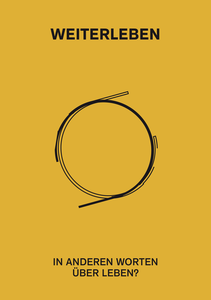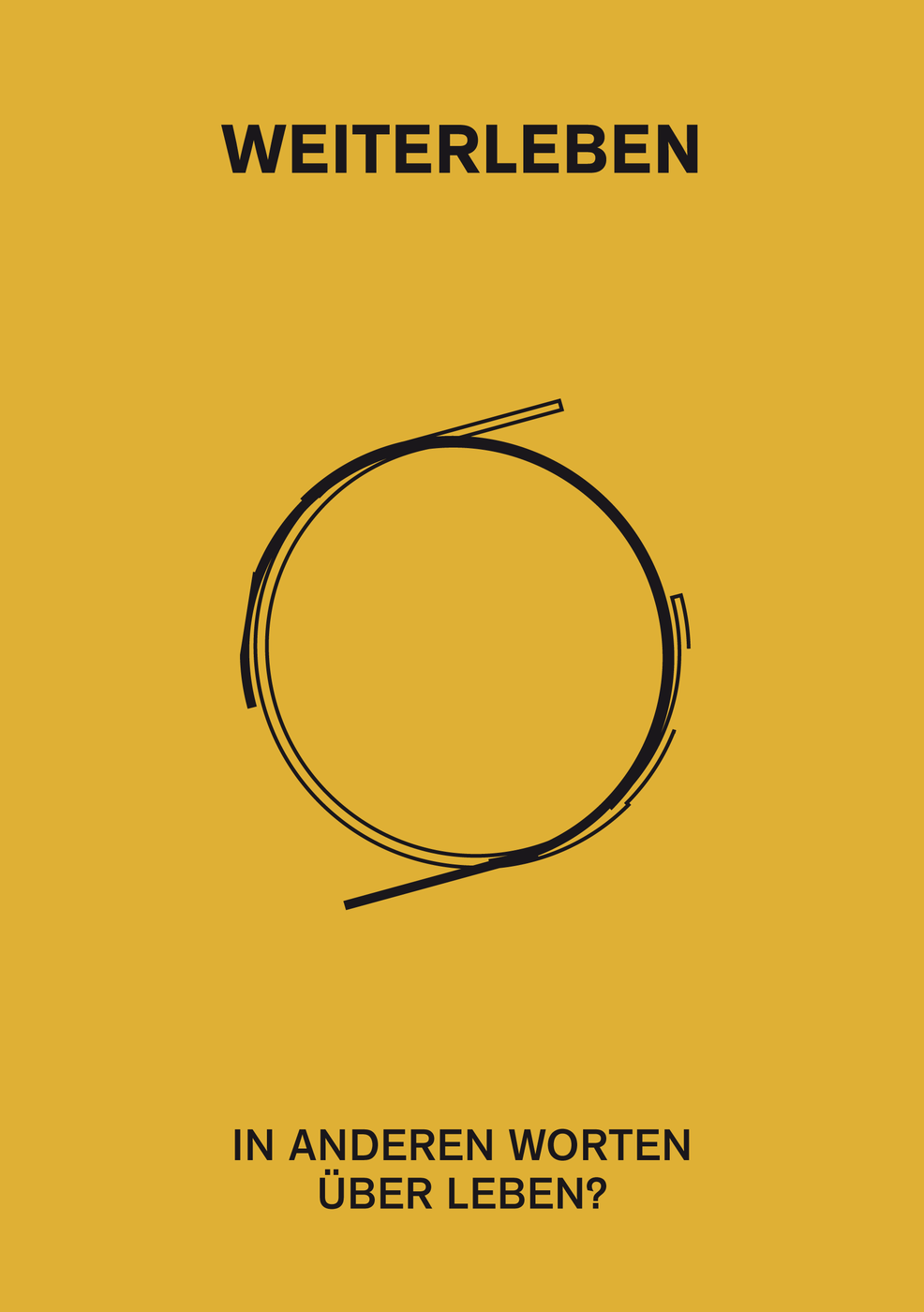LIVING ON | In Other Words on Living?
Opening hours: Tue–Sun, 10:00 a.m. – 6:00 p.m, Free admission
Special opening days:
closed on 24.12., 25.12.2016 and 01.01.2017
open on 26.12., 31.12.2016 and 02.01.2017, 10:00 a.m. – 6:00 p.m.
With works by: Thomas Ender, Em’kal Eyongakpa, Lorenz Helfer, Clara Ianni & Clara Ianni in cooperation with Débora Maria da Silva, Juliana dos Santos, Nossa Voz, producers of Kayapó, Tucano and Karajá, Monira Al Qadiri and Tracey Rose
Curators: Delal Isci and Thiago de Paula Souza
Opening: Thur, 17.11.2016, 7:00 p.m.
Words of welcome: Eva Blimlinger, Rector of the Academy of Fine Arts Vienna
Introduction: Delal Isci und Thiago de Paula Souza, Curators
For many societies the colonial project meant the end of the world—long before today’s ecological catastrophe scenarios and the coining of the term “Anthropocene” for the geological era determined by man’s interference with the Earth. The exhibition Living on | In Other Words on Living? combines postcolonial, ecological and economy-critical discourses to question possible forms of expressing the social in view of the destruction of living environments and the far-reaching repression of local attitudes toward history. Living on couples contemporary artistic reflections on life after the end of the world with aesthetic productions by Brazil’s Kayapó, Tucano and Karajá indigenous peoples and Thomas Ender’s depictions of the country’s landscape which he made during an Austrian expedition two-hundred years ago, when the global race for South America’s resources started.

Video (Directed by: Didier Schaub, in collaboration with DoaulArt, Douala, Cameroon), 8:50 min.
Courtesy of Dan Gunn, Berlin
Following Jacques Derrida’s essay Living On. Borderline 1 , the exhibition and research project tests an intertextual translation of, as it seems, geographically disparate narratives into events after the end of local historiography. Views of landscapes in Brazil, Upper Mesopotamia, Austria, Kuwait, and the African diaspora visualize the strategies and ecologic movements of their local populations in both the semiotic and the architectural space—populations that live on beyond the liminal suspension of life. An apocalypse announced long ago that cannot come about.
Presented in three chapters the exhibition explores this thematic field from the point of view of critical (native, horizontal, anarchist) Anthropology , activating Afrofuturist, feminist, literary and media-archaeological images and highlighting the economic, social and historical aspects of narratives on the end of the world. How do experiences, images, and human beings live on at the end of a history felt to be the end of time? Are there possibilities of expression beyond controlled historiography which allow one to live on outside and beyond such historical events?

© Kupferstichkabinett der Akademie der bildenden Künste Wien
The artistic positions presented in the exhibition deal with memories of genocide, massacres, and dislocation as well as the economization and experience of landscape/nature going hand in hand with it—a tangible world which is incessantly haunted by the ghosts of colonialism that are very much alive. In dialogue with the presented contempormaary positions, art-historical references highlight historical continuities between colonialism and its continuation as part of the politics of global warming and environmental policy in the Global South in the sense of Bruno Latour’s concept of “diplomacy” 2 .
1 Jacques Derrida, “Living On. Borderlines,” in Harold Bloom, Paul de Man, J. Derrida, Geoffrey H. Hartman und J. Hillis Miller, Deconstruction and Criticism (New York, NY: Continuum, 1979), 75–176; original French text first published as “Survivre,” in J. Derrida, Parages (Paris: Galilée, 1986), 119–218.
2 Bruno Latour, „Guerre et paix des cultures“ (2000), Ethnopsy. Les mondes contemporains de la guérison, no. 4, special issue: Propositions de paix. Colloque de Cerisy (Paris, 2002), 61–80.

PROGRAM
Fri, 11.11.2016 + Sat, 12.11.2016, 4:00–7:00 p.m.
Academy of Fine Arts Vienna, Schillerplatz 3, Room M20
Macropolitics and Microprosthetics
Two-day seminar with Max Jorge Hinderer Cruz on Felix Guattari’s concept of “integrated world capitalism,” fragmented bodies, ecology, micropolitics, and the extended economy of the sensual (German/English)
Thur, 24.11.2016, 3:00–7:00 p.m.
Institute for Education in the Arts / Karl-Schweighofer-Gasse 3 / Room 312
Qual é o pente? Diálogos de «um» cabelo político / What is the comb? Dialogues of “a” political hair
Workshop at the interface between art education and artistic production with Juliana dos Santos, students of Lena Rosa Händle’s education-in-the-arts course, Department for Art and Education (German / English / Portuguese)
Fri, 25.11.2016, 4:00 p.m.
Academy of Fine Arts Vienna, Schillerplatz 3, xhibit
Colonial ghosts or Why are we still talking about this?
Guided tour with the curator Thiago de Paula Souza (English)
Thur, 01.12.2016, 6:30 p.m.
VBKÖ, Maysedergasse 2/4. Stock (elevator), 1010 Vienna
The city and its displaced imaginary
Talk with Berhanu Ashagrie Deribew and Juliana dos Santos (English / Portuguese)
Fri, 16.12.2016, 4:00 p.m.
Academy of Fine Arts Vienna, Schillerplatz 3, xhibit
Konzepte der Landschaft und Erinnerung [Landscape and Memory Concepts]
Guided tour with the curator Delal Isci (German)

Courtesy of the artist and Galeria Vermelho São Paulo
Special thanks to
Sonja Huber, Ruth Lackner, Claudia Kaiser, Gilbert Marx, dem Kupferstichkabinett und René Schober, Diedrich Diederichsen, Jorge Sallum, Sandra Adam, Dorukhan Sakar, Deniz Önengüt, Oliver de Luccia, Gabi Ngcobo, Eren Ileri and Lena Rosa Händle
List of entries
-
LIVING ON | In Other Words on Living?
Opening hours: Tue–Sun, 10:00 a.m. – 6:00 p.m, Free admission
Special opening days:
closed on 24.12., 25.12.2016 and 01.01.2017
open on 26.12., 31.12.2016 and 02.01.2017, 10:00 a.m. – 6:00 p.m.
With works by: Thomas Ender, Em’kal Eyongakpa, Lorenz Helfer, Clara Ianni & Clara Ianni in cooperation with Débora Maria da Silva, Juliana dos Santos, Nossa Voz, producers of Kayapó, Tucano and Karajá, Monira Al Qadiri and Tracey Rose
Curators: Delal Isci and Thiago de Paula SouzaOpening
xhibit
xhibit







